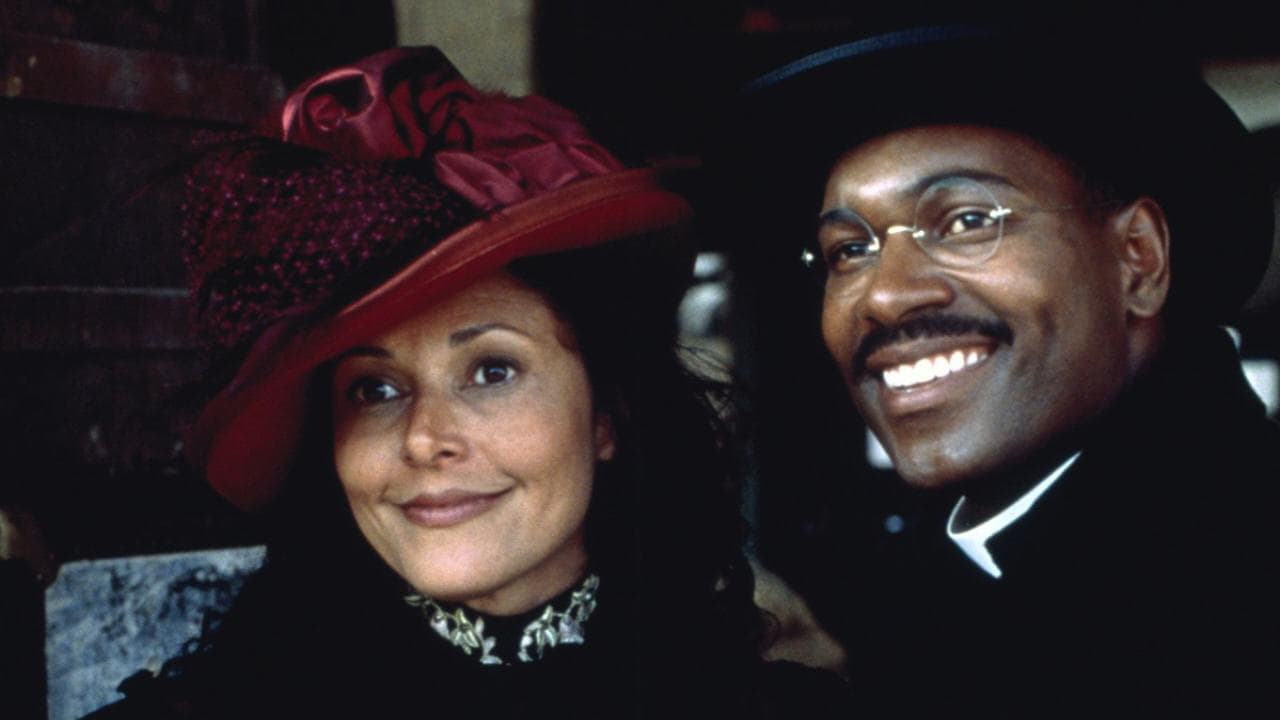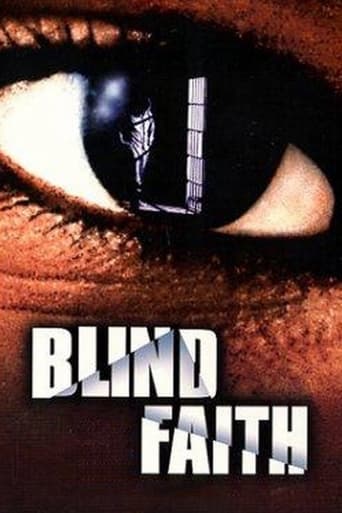

very intense drama about an upcoming black family in the late 40s, who's life gets out of control as the eldest son turns out to have murdered an Irish boy. pace of the story, characters and the difficult topic as well as a professional film-making crew and excellent actors make this movie a super secret tip! this is not the invention of the wheel, but oh how much i enjoyed that movie. please read other user comments for further info; in my opinion this film is a real candy for those of you who like off-cinema and art-house productions. i also wonder why no one seems to have seen this movie, lets IMDb look a little weak. Themes in this film: family (values, suppression, violence), racism, inequality in societies concerning race or sexuality (esp. homosexuality).
... View MoreOf all the dozens of excellent films I have in my collection on VHS, this remains the film I would most like to see transferred to DVD. What a gem! When I originally purchased it without knowing a thing about it, I was slightly intrigued by the fact that the synopsis on the video box makes the film sound like a gritty suspense thriller, one of my favorite genres. The plot sounded interesting a young black student is accused of murdering a while teen in NYC during the 1950's. OK, sounds like an intriguing piece of drama, I'll take it. So I took it home and was utterly blown away. One plot twist after another, fantastic acting, and a surprise theme about homophobia (which turns out to be the main point of the film) kept me riveted to my seat for the entire film. The story was believable, the drama intense, and the ending heartbreaking. I kept thinking about this film for days after I'd seen it, and since then I have lent my VHS to a half dozen friends, all of who were as emotionally effected by its sincerity as I was. This minor masterpiece, which sadly seems to be quite obscure, is a piece of drama that I would not hesitate to recommend to anyone. If you can manage to find it anywhere, rent it, purchase it, copy it, or steal it. You won't be sorry.
... View MoreYes, this was a film I had always wanted to see, but failed to do so initially. When I finally got my chance to do so, I finally realized all that I had missed.This story, actually set in 1957 New York, revolved around the Williamses, a middle-class African-American family.The eldest brother, Charles (Charles S. Dutton), was an NYPD Officer with aspirations to become New York's first-ever Negro police sergeant. The middle brother, John (Courtney B. Vance), was an attorney from whose vantage point this story is narrated. The youngest brother, Eddie (Kadeem Hardison), is a jazz musician.However, that is where the similarities halt. Charles, married with three children, is a by-the-book, strict father whose actions and interest in his job and overt willingness to belong to the white establishment, at even the cost of his own family, take on the squalid decorum of a white man's black man, overshadowing whatever actual compassion he may have. John is the aptly-placed middle brother who is loyal to Charles, yet somewhat torn by his devotion to Charles and the variances of his younger brother, Eddie, the free-thinking, spirited, open-minded individual who easily sees Charles for who and all he really is in ways John cannot--and actually, at first, refuses to. It is Eddie, coincidentally, who turns the tide for the family's--and the film's--complexion with his revelating disclosure about all that has happened and why.When Charles, Jr. (Garland Whitt, who was also featured alongside Denzel Washington in "The Hurricane") is arrested for a murder he was actually glad to have committed (we learn the reason why as the story unfolds), Charles Sr. becomes more committed to going along with the NYPD conspiracy behind the truth of the murder rather than being more of a father and standing up for his son as a real father would--and should. When no other attorney will take the case of defending Charles Jr., John decides to risk his practice by defending his nephew. Invariably, it is Charles Sr.'s wife, Carol (Lonette McKee, in one of the finest, strongest and courageous performances ever given by an African-American woman on celluloid EVER!!!!) who takes the stronger stand and rises to the occasion to stand up to her selfish, broodish husband to be, as the mother, THE parent to her son that Charles Sr., as a father, is not!!!!!!I can realize why this movie did not get the attention it rightfully deserved: it is a true slice of African-American life that black folks are too afraid to acknowledge about themselves on screen. To me, this movie spoke more loudly of true black family values than Soul Food did (and did well). Even today, Black America is too ashamed, frightened and embarrassed to openly realize and see sexual and gender minorities (of which I am one, as a transgendered black woman) as part of their reality, at times conveniently hiding out behind the guise of religion as an excuse of not having to deal with many issues (besides this one) openly. Although set in the late 1950s, this story is very real and still so very true today even in this new millennium we are now living in. This movie, concurrently, shows us through each of the three brothers, what we at times choose how we would like to be (Dutton), what we would wish to be (Vance) and how great we as people really are and can truly be (Hardison). As for Ms. McKee, she embodies the rock-solid strength of true, unconditional love--a real mother in every sense of the word.I would recommend this film to any one who wants to take a hard, cold yet true concurrent look of how a family should and should not be in a way that embodies yet discourages family dysfunction at the same time. Also of importance is how much conformity and not taking a proper stand when a true stand is needed can cost even our loved ones.
... View MoreIn a way, it is easy to see why a movie like Blind Faith was lost in the shuffle; a period piece with an all Black cast that deals with racism. On the other hand, it's hard to imagine why no one has heard of a film this good. It was directed by Ernest Dickerson, long time cinematographer for Spike Lee, and it stars recognizable names, Charles S. Dutton, Courtney B. Vance, Kadeem Hardison and Lonette McKee.The film was produced for Showtime television, had a very limited theatrical run in 1998 and was nominated for several Independent Spirit Awards. I didn't see the film until 1999, when it played at a Film Festival in St. Louis. When I read the cast list and saw who directed it, my jaw dropped. How had this film escaped my radar? I was even further shocked when I saw it. It is (along with Being John Malkovich and Boys Don't Cry) one of the three best films I've seen in 1999 and one of the most powerful films I've seen since Uli Edel's Last Exit to Brooklyn, ten years ago.The film is the story of a young Black boy named Charles Jr., a cop's son, accused of murdering a young white boy in civil rights era New York City. He confesses to the crime and refuses to do anything in his own defense, which his uncle John, who is also his lawyer, can't understand. The boy has no history of violence or crime and was basically a quiet unassuming kid.In spite of the lack of cooperation from Charles Jr., John mounts a defense, even though the prosecution seems to have an open and shut case and is pushing for the death penalty. To give away more would be as big a crime as revealing the plot twists at the climax of The Sixth Sense or Fight Club.What makes this movie so great is its subtlety and its realism. The Black characters are not saints and the white characters are not demons. Movies like this tend to sacrifice their power to sentimentality by making the minority characters into martyrs and heroes that are beyond reproach. Also, this film makes us like the white characters, so that when their racism finally shows, it is all the more shocking.Frank Military's script pulls off the difficult task of making us care about a story we think we've seen before, and then lets us know that we haven't seen it before. This movie is so much more powerful than preachy, Hollywood stuff, like Ghosts of Mississippi, that it eclipses those films completely. This is a hard hitting story of race and justice that all Americans need to see.
... View More